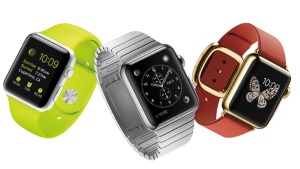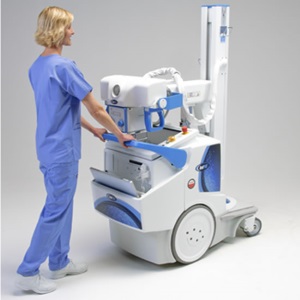Category: “Medical Device Manufactures”
- Risk Sharing Between Pharmaceutical, Biotechnology, and Medical Device Manufacturers
Pharmaceutical and biotechnology companies should prepare themselves to meet the risk sharing demands from the increasing number of ACOs in the coming years, according to new research from HRA – Healthcare Research & Analytics. In the company’s most recent study, Accountable Care Organizations: Partnering for the Future, ACOs are increasingly looking for risk sharing to become part of standard contracting agreements with manufacturers in the near future.
According to input from 100 accountable care organizations, 8% of Medicare ACOs and 4% of Commercial ACOs already have active risk-sharing programs with manufacturers. The risk-sharing models vary across ACOs, but the message is clear that the organizations expect manufacturers to have a stake in patient outcomes.
“We need you to come to the table and say – ‘we want to partner with you and the providers to share risk’,” says Edward D. Shanshala, CEO at Ammonoosuc Community Health Services, a key opinion leader (KOL) interviewed as part of the study.
- Amazon’s FDA Meeting Signals Big Healthcare Plans
- How the FDA regulates 3-D printed devices
- Mach7 to relocate headquarters
- Neither Covidien Nor Medtronic Curb Their M&A Appetites
- Inversion (tax avoidance going offshore) has worked out well for Medtronic
- FDA dismisses charges that the 510(k) process is killing innovation and profits
- China protects its manufacturers – why don’t we do the same?
The Chinese government as announced that going forward they would pursue policies explicitly designed to favor domestic manufacturers over foreign manufacturers.
- GE Healthcare Selects RTI Connext DDS for Connectivity of Large Medical Instruments
The Internet of Things (IoT) is going to be connecting billions of ordinary things and making each one accessible through the Internet. This will revolutionize the way virtually everything functions by providing valuable insight to consumers, manufacturers, and service providers. One of the industries already taking advantage of this technology by deploying connected devices is healthcare. The potential for improving the delivery of care, lowering costs, and introducing new remote medical services presents one of the biggest opportunities for medical device manufacturers and healthcare providers. As one of the top medical device manufacturers in the world, GE Healthcare has made the decision to use the RTI Connext Platform to help it communicate more effectively with connected devices in hospitals.
- Did Medtronic Really Need To Worry About Tax Inversion Legislation And Hire Lobbyists?
- Another major medical device seller looks to leave the business
Looks like J&J is following Siemen's Healthcare IT in exiting. Is ACA driving this? Johnson & Johnson is reportedly looking to sell its medical device unit Cordis for as much as $2 billion as part of its continuing effort to unload poorly performing assets.
- Varian breaks ground on Utah expansion
- GHX Surpasses Important $5 Billion in Healthcare Savings Milestone
Sales has moved from solving problems to consultative selling and now to co-venturing selling under ACA. Here is a good example of a company that has had great success changing from selling 'boxes' to really partnering with healthcare providers. Perhaps all venders can learn something from these efforts.
- Smith & Nephew’s new sales model to lower costs: Is it sustainable?
- Toshiba is First MR Manufacturer to Meet Network Security Guidelines of the U.S. Department of Defense
- 15 things to know about the Medical Device Tax
- Carestream Announces New Ceiling-Mounted Tube Option For DRX-Ascend
- PPACA medical device tax falls short of expected revenue
- Tax Inversion 101 for Medical Device Companies
- Beware These Nine Medical Device Vulnerabilities
From pulse oximeters to CT scanners, a typical hospital averages two medical devices per bed, capturing, storing, or transmitting patient data through the IT network on a daily basis. Yet medical devices are often left out of risk assessments, security, and compliance efforts—an automatic “fail” of both HIPAA and Meaningful Use requirements. And that’s just part of the problem. The range of potential security risks posed by medical devices is much broader. - See more at: http://www.24x7mag.com/2014/08/beware-nine-medical-device-vulnerabilities/#sthash.7t7zT3Rc.dpuf
- Apple Jumps on Wearables Bandwagon
- Bovie Medical Announces Two New Senior Additions to its Direct Sales Force
- Could Your Next Device Be Exempt From FDA Premarket Requirements?
- Frost & Sullivan: Change in Demographics and Surge in Domestic Manufacturing Drive Asia-Pacific Medical Devices Market
- Medtech Venture Investment changes
Venture capitalists are pouring more money than ever before into medtech firms but they prefer later stage firms and give more money to fewer firms.
- Japan takes action to ramp up its Medical Device Exports
- Good luck – calls for repeal of the Medical Device tax over IRS screw up
This tax isn't going away. The gaping black hole of endless consumption, otherwise known as the Federal budget, knows no give back.
- Here are the basics on Canon’s product line
- Healthcare providers are increasingly becoming technology innovators and venders themselves
- The basics about ECRI
If you're a Medical Device Manufacturer you had better know about ECRI. ECRI is perhaps the most influential company in healthcare on equipment. Considered to be the 'Consumer Reports' for the medical industry no other company carries the impact of this company.



